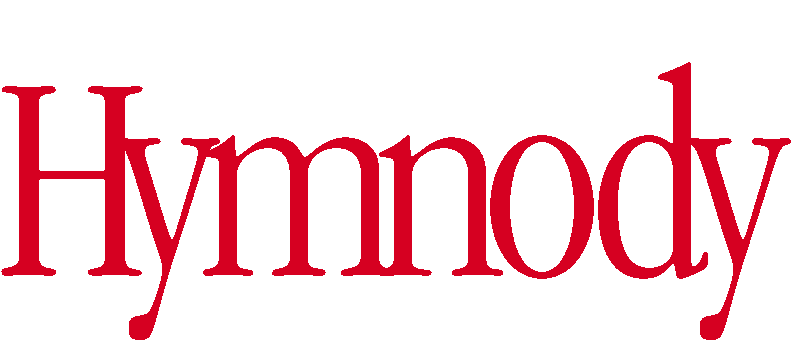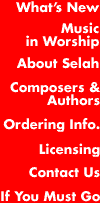|
|
 |
Together Met, Together Bound
Hymn Settings by William Rowan
Hymn tune collection
Composer William P. Rowan
Released January 1993
Catalog no. 125-030 (Soft-cover, 80 pp.)
Price $17.50 (U.S.)
ISBN 0-9622553-5-1
Order now! 

Description
A complete collection of William Rowan's hymns. Much of his work has already appeared in hymnals, supplements, and other collections. His tunes are imaginative and singable, and always add a new dimension to the texts he chooses. Together with the best contemporary poets, Rowan gives the Church many new hymns so that we may all sing to God a new song. Foreword by Brian Wren. 80 pages.
Reviews
"Together Met, Together Bound is a collection of 46 original tunes, plus one arrangement, by William P. Rowan. Mr. Rowan, Director of Music at St. Mary's R.C. Cathedral, Lansing, Michigan, is fast becoming known in America as a sensitive and imaginative hymn-tune composer. A number of the tunes have already been published in various hymnals but the present volume brings together all of his tunes (so far!). The 51 hymn texts are all by contemporary authors, including 22 by Brian Wren and 11 by Fred Pratt Green. Brian Wren contributes a warmly commendatory foreword, and it is of course his 'I come with joy' that provides the title of the collection.
The tunes are in several styles and are more or less evenly divided between unison and SATB and between major and minor keys. Perhaps the best is YOGANANDA, written for FPG's 'When in our music,' but now also serving Brian Wren's 'When all is ended' and Carl Daw's 'God's Paschal Lamb is sacrificed for us.' There are some pleasing essays in an English folk-song style such as VIA CRUCIS for Thomas Troeger's hymn for the Stations of the Cross. The only real failure in the collection is the tune for 'There's a spirit in the air,' which starts well in G major but unaccountably veers to E minor for the last line. Of course, Britishers would feel that for that hymn, and also for FPG's 'For the fruit of all creation,' no new tune is needed.
Nevertheless, this book, thoroughly indexed for both tunes and texts, contains much of interest and value. It should certainly be in the armoury of every hymnal editor." Bulletin of The Hymn Society of Great Britain and Ireland, July 1994.
"Most of this journal's readers are by now familiar with at least a few of William Rowan's hymn tunes. In Together Met, Together Bound, all his tunes from 1983 to 1993 are gathered under one cover. The book's introduction aptly cites both his sensitivity to texts and his variety of styles, but it is the latter which impresses the reader at once. Some of these tunes are rooted in the Genevan psalm-tune tradition; others bring to mind Stanford or even Vaughan Williams. Still others exhibit an early-American flavor or a grandeur which is almost Handelian. Several tunes feature vigorous leaps and syncopations in a style uniquely Rowan's own, and all are splendidly singable.
Rowan's sensitivity to the texts reveals itself gradually as one begins to notice instances here and there in which the text and music support, reflect, or illumine each other. Examples of this subtle relationship are found in Rowan's tune Carpenter, in which skillful harmonic manipulation parallels the text's question-and-answer structure, and in Prophets, where the line, "They give and get no rest, but stand against the powers-that-be as signposts of integrity," is undergirded by a pedal point. One can even understand the book's title (taken from a text by Brian Wren) as a reference to the closeness of relationship between the words and music of Rowan's hymn settings.
Rowan's preference for hymn texts is wholly contemporary: all nine of the authors represented in this collection are still living. Further, it is the most forward-looking of those writers whose works are most fully represented; hence, 21 of Wren's texts are included, but only one by the more conservative Timothy Dudley-Smith. (Indeed, the success of the Wren/Rowan collaborations suggests that the book's title could well refer to their fruitful working relationship.) The progressiveness of his chosen texts is nicely offset by Rowan's own music, which is so firmly grounded in various hymn-tune traditions. One can therefore regard Rowan as the antithesis of a composer such as Calvin Hampton, whose boldly innovative music breathed new life into so many familiar and "traditional" hymn texts. And yet the comparison is warranted, for the quality of Rowan's work comes close to claiming for him the same stature among his generation of hymn-tune composers as Hampton attained among his.
The book itself may be "together bound" rather too well, as this reviewer's copy resisted his every attempt to persuade it to stay open: but durable it is also, as it survived even the most brutal of those attempts. The printing is clear and the layout attractive, but a wider margin on the inside of each page would have been welcome. The hymn texts are printed in a narrow typeface which sometimes looks cramped and can be difficult to read. The musical text, although small, is well spaced and can be read easily.
All the usual indexes are included, and of these only the Scripture Reference seems a bit sketchy. The Metrical Index of the tunes very helpfully prints the incipit of each hymn tune, but as it provides no hymn numbers, one must refer to the Index of Tune Names to look up the complete tune. No notes concerning the genesis of the individual tunes or the composer's ideas about their performance are included. An attractive bonus feature is the composer's handsome calligraphy, which graces both the book's cover and its dedication page.
The volume is organized alphabetically by first line, with the exception of Fred Pratt Green's 'When in Our Music, God Is Glorified,' which fittingly begins the collection and serves as a statement of purpose. Selah Publishing Co. is to be commended for making Rowan's important work available." The Hymn, January 1995
If you would like your comments on this publication to appear here, fill out our online review comments form.
Sign up our
|




